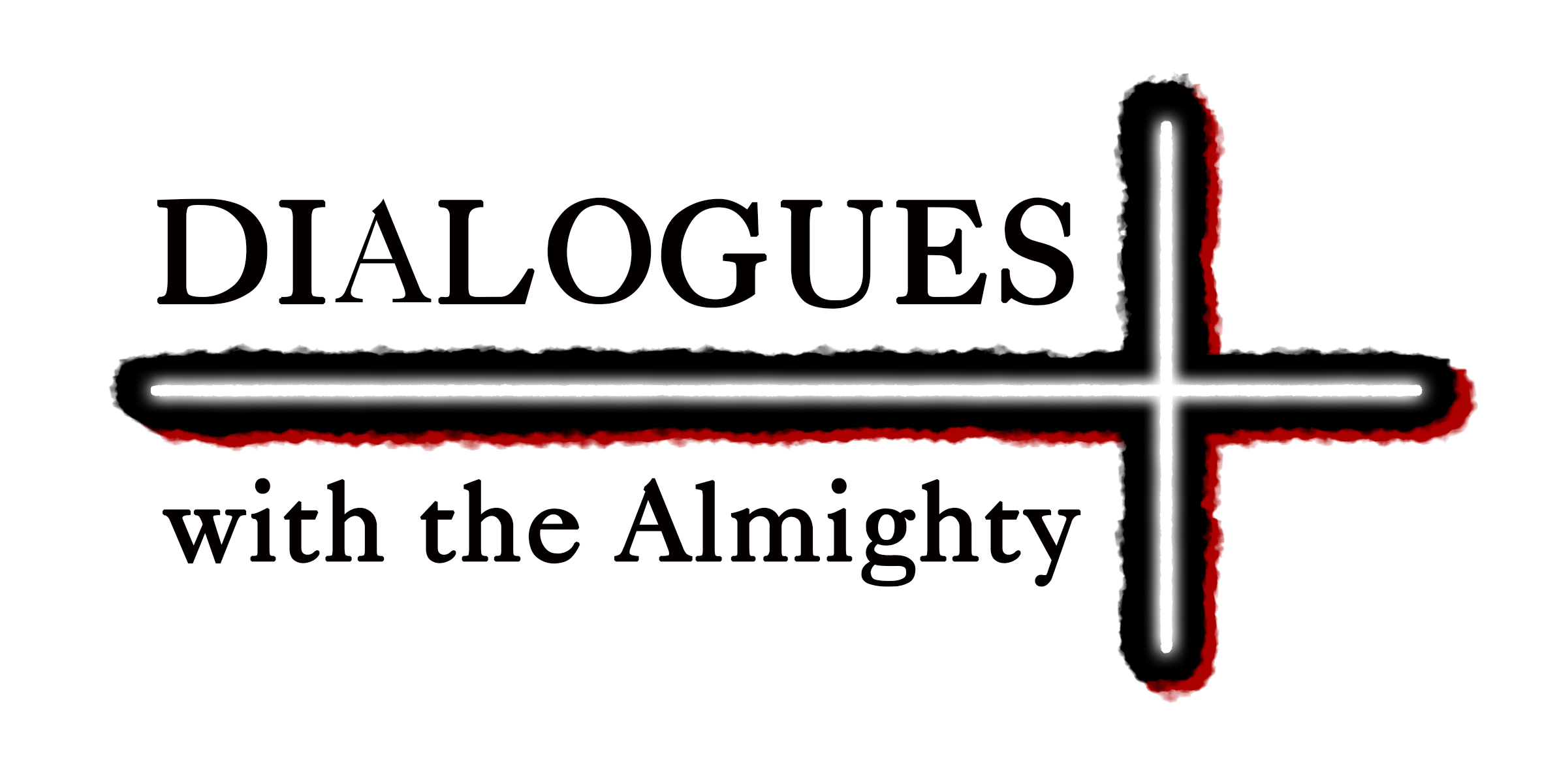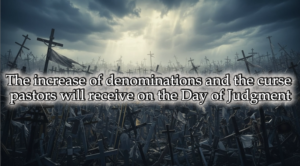Before encountering this truth through the author(From here on, I will refer to him as ‘teacher.’), my mother, younger sister, and I lived under the oppression of a church and pastor for ten years. They ruled over the congregation with fear through “Physical touch as part of a healing prayer(ㅡBut it was like abuse more than healing for prayer)” (physical discipline), wielding “spiritual” authority as a weapon to silence dissent and abuse believers according to their tastes. Escaping that church at age 12, until I came to know this truth through the teacher, those ten years were a dark abyss for our family. My mother devoted her body, heart, and possessions to that faith—ready to sacrifice her life if asked—yet we lived in pitch-black reality. Scripture says God is love, a God of the poor and mourning, but in that church, God was only a stern, fearsome figure to me. Though we committed no notable sins, our family was frequently subjected to ‘physical punishment’ for vague “spiritual crimes” and “wickedness” we couldn’t even feel. Among the congregation, we were treated as spiritually toxic, shunned and despised. Behind our backs, they demanded devotion to God, taking every penny of my mother’s salary, leaving us unable to afford a meal or dream of a few thousand won. Publicly, they branded her a worthless, wicked mother incapable of supporting her two children, pointing fingers. Our family’s poverty and hunger were always blamed on the unknown wickedness and sinfulness of our spirits—that we were unable to receive God’s blessings because of it. We had to live under constant judgment and accusation, yet no one ever told us what we had done wrong, or what we should do to avoid repeating those sins if we had indeed committed them. All we were told was that we had sinned and thus deserved punishment. Beyond that, we had no idea what our actual wrongdoing was. So each day, we lived as if walking through pitch-black darkness, unable to see even an inch ahead—stumbling, breaking, and being torn apart in every direction. Eventually, my mother’s body and spirit withered; hospitals found no diagnosis, but her health deteriorated to skin and bones, teetering on death. Then, the pastor lied to us, saying she’d abandoned us, while abandoning her at a remote prayer retreat, neglected. For two years, we lived unsure of each other’s fate, shuffled between church volunteers’ homes, surviving on others’ whims. Miraculously, at that retreat, she met the teacher, followed this truth, regained her health over two years, and, strong enough to embrace us, retrieved us from that church through our grandmother when I was 12. The teacher’s first words explained why our family endured such poverty and hardship, unable to live normally under a false pastor’s tyranny, why God let us suffer in tears, why we lived like orphans despite having parents, and why He hadn’t rescued us sooner—each point grounded in Scripture, not mere comfort or theory. Young as I was, I understood why my past life had to be so, and that understanding consoled my resentful sorrow. Yet, I didn’t immediately think, “I must believe in God and follow this truth.” Escaping that oppressive, fearful life—where even a child’s innocence was a luxury—to live with my mother, breathing freely without scrutiny, was happiness enough. I followed this truth because of her, not from conviction or faith in its value.
.
.
But year by year, living and learning this truth, I came to feel its authenticity in my heart. The first revelation was the gift of tongues. The church I’d attended was rife with tongues, but theirs was a single word repeated with a twisted tongue, arms raised, bodies shaking violently, or venting rage—unintelligible, scary, chilling, and repellent to my young eyes. True tongues through the teacher weren’t such satanic repetitions but like a language of nations—not just one, but varied, not of this world, sometimes resembling English, Chinese, or Arabic, each with distinct tones and forms. They were wondrous—sometimes soft and tender, sometimes wise and dignified, sometimes strong—never chilling, frenzied, or grim like the church’s, but like hearing earnest prayers beside me, comforting, stirring my heart with warmth and peace, akin to hearing a a gentle piece of wisdom. If anyone were to ask, ‘If the angels of heaven truly have a language, then which would be the true angelic tongue—the tongues of mainstream Christianity or the tongues I came to know through the teacher?’—anyone who saw and felt the difference would know: in form and in spirit, the tongues I encountered through the teacher are the true tongues. What was especially remarkable was this: before I had received the gift of tongues, when I was younger, I would often follow the teacher during mountain prayers. At the time, since I hadn’t yet received tongues, the teacher would pray ahead in tongues while those of us following behind would sing hymns as we walked. But since we were climbing late at night, often near midnight, and the mountain itself was known among both Christians and shamans as a ‘power peak,’ it was dark and eerie. We would often hear demonic tongue-speaking echoing in the darkness, which was terrifying. I would sometimes feel chills and a cold presence behind me, as if someone were following closely. Because of that, I would sing louder and try to stay close behind the teacher out of fear. However, several years later, after I received the gift of tongues and returned to those mountain prayers with the teacher, things felt completely different. Unlike before—when I climbed without tongues—now I climbed while praying in tongues. And instead of chills or fear, I felt completely refreshed, even as if my heart was overflowing with peace and fullness. It was then that I could truly feel: This is the power of tongues. Just as the teacher explained by referencing Psalm 8:2 and Matthew 21:16, that the babbling of nursing infants is the heavenly language—tongues—and because there is power in tongues, even demons cannot approach it. I was able to personally witness and experience the truth of the teacher’s words: that God gave even powerless infants the authority of praise through tongues.
.
.
The teacher doesn’t set prayer times or places—praying while walking, driving, living—not separate from life. Living with him, I often feel tongues’ power. Once, walking a creek trail as he prayed in tongues, a woman approaching normally heard it, suddenly spun in circles, bewildered, acting crazed, her stunned husband staring. Yet, receiving tongues, I found its true power isn’t merely expelling demons or pleasing forms—it’s internal transformation. When I first received it, unlike Christianity’s repetitive tongue-twisting, full sentences burst forth—unintelligible to me, like a language, rushing out like water from a bursting balloon through a pinhole, sharp, rapid, my lips struggling to keep up. As it poured, I sobbed uncontrollably, yet my mind wasn’t that sad—watching myself weep calmly, a strange phenomenon. Grateful, but not sorrowful, I cried while my heart observed serenely. Continuing, my heart joined, tears becoming prayer despite not knowing the meaning (1 Corinthians 14:14-15). It felt like two selves—tongues and prayer together yet separate. Afterward, my spoken prayers (in my native tongue) changed. Before, I struggled to express pent-up feelings, unsure how to pray, losing focus and earnestness, repeating myself in 30-minute prayers. With tongues, they guide my heart, expressing shame and sin before God—not grandiose, but raw confessions—infusing each word with longing, rekindling dry spoken prayers like nourishment, expanding my heart’s capacity. The more I continued, especially when I faced emotional hardships or situations I truly felt I couldn’t overcome, it’s not that I was any less hurt or struggled less than others—but even while feeling the same pain and difficulty, I found that I was given the strength to endure, along with an ability to hold my emotional center. This strength helped me grow in understanding and consideration for others, so I wouldn’t be swept away by emotions. Most of all, it gave me power to restrain my desires and cravings, helping me be more patient and self-controlled. Speaking in tongues doesn’t make everything instantly perfect before God, nor does it make me completely good or angelically beautiful. But I can definitely say that it helps keep my heart from leaning too heavily into emotion, and gives me a calmness and generosity of spirit that helps me understand and be more tolerant toward others.
What confirmed the power of tongues even more for me is this: I wasn’t always diligent—I often failed to pray consistently, and would sometimes stop praying in tongues for a while before starting again. But the contrast between when I was holding on to praying in tongues and when I wasn’t was so stark that it couldn’t be denied. The state of my heart, my inner values, and even the standards by which I thought and judged things were completely different depending on whether I was consistently praying in tongues or not. This change in me was so clear that even people around me could notice it. And every time I recognized this, I couldn’t help but acknowledge that the power of tongues truly leads me toward goodness.
.
.
Yet, I can’t interpret tongues, so they benefit only me, not others (1 Corinthians 14:6-14). Those like me with tongues are “tongues-gifted person”; the teacher, interpreting them for understanding, is a “prophet.” When people think of prophecy, they usually understand it as foretelling the future—being able to see and declare what is to come. That’s how it’s commonly taught, and for that reason, the prophecies proclaimed in most churches follow a similar pattern: ‘If you do this, this will happen. If you do that, that will happen. You will be blessed in the future, or you will face a curse.’ These messages are declared as revelations and prophecies from God. However, through what I’ve learned, heard, and personally experienced from the teacher, I’ve come to understand that prophecy, while it may contain revelation, is far more than that. The prophecies I’ve encountered are filled with beautiful praise—they sometimes rebuke, sometimes comfort, and sometimes feel like a prophet speaking on behalf of my own heart. They often become answers to my inner sadness and struggles, or provide guidance and counsel to help correct my weaknesses and restore what is broken in me. At times, it feels as if God Himself is responding to the thoughts, worries, and sorrows I’ve never told anyone—moving my heart with His answer. Even when I’m emotionally overwhelmed, hardened, or resistant—when I don’t want to hear it—the praise within the prophecy pierces my heart, awakens my conscience, breaks my stubbornness, and gently turns my heart around. It’s a mysterious power.
Even though these prophetic prayers are not my own—spoken through the teacher—they still carry my heart, become my own prayer, and speak to me deeply. And because they’re not meant for just one individual, but are words that apply to all, they become edifying, beneficial, and at times rebuking for everyone who hears them. In contrast to the world’s churches and religions, which almost universally focus on earthly values, chasing after blessings tied to this world, the truth I’ve come to know through the teacher is entirely different. From beginning to end, everything is centered not on worldly gain, but on transforming the inner self—on shaping a heart of love and cultivating beauty in our character. Because the foundation is so different, I began to see the Bible in a new light. What the Bible truly wants to tell us, what God desires from us, what we are meant to seek, long for, and pursue—all of it became clear and unmistakable.
.
.
Also, when one diligently prays in tongues and stores it up in the heart, the gift of wisdom begins to follow and manifest. I’m not yet mature, tasting it faintly, but even this reveals tongues softening my heart, broadening tolerance, deepening awareness of my flaws, urging earnest confession, confronting my habitual sins—without God’s grace, I’m sin alone, rooted deep within. In this way, the gift of tongues helps me reflect on my sinfulness and deepens and nurtures humility within me. Then, the gift of wisdom seems to take that humility as its root, adding true wisdom to my actions and behavior. It broadens my perspective when working or when receiving and processing different viewpoints from what I see or hear. As my perspective widens, so does my understanding; and as my understanding grows, my efficiency in carrying out tasks increases as well. Along with that, I’ve felt that the gift of wisdom develops in me a heightened sensitivity—refined instincts and awareness—that allow me to think more flexibly and respond more proactively in both judgment and personal discernment.
Knowing my original self, I feel the gap before and after most keenly—even strangers sense it, unaware of why. I can’t say exactly when or at what moment I first received the gift—it was like a light rain soaking my clothes without me realizing it. Just as you don’t notice you’re getting wet until later, the gift gently seeped in, and only in hindsight did I come to realize how my heart, attitude, and perspective had quietly begun to change. It wasn’t as though God swung a magical club and suddenly gave me wisdom in a dramatic moment; rather, He granted it in such a subtle and gradual way that I couldn’t even tell when it began. At first, the broadened perspective and refined sensitivity that came with the gift of wisdom felt like they came from my own effort and ability. That led me, unknowingly, to a kind of pride—not overt, but still pride. But just like with the gift of tongues, walking in this truth has never been a straight, upward path. It has always been a journey of ups and downs, of grace and stumbling, and of experiencing both sin and restoration. And because of this, in seasons when my prayers lack, or when my zeal and desperation before God fade, I naturally come to realize that the wisdom, the broader perspective, and the depth and clarity of discernment I thought I had were never really mine.
That difference becomes painfully clear. Before I had experienced the power of spiritual gifts, I was aware of my flaws and weaknesses—I knew I needed to change—but I didn’t take it all that seriously. But once I tasted the power and grace of the gifts, every time I was confronted by my limitations and inadequacies, I couldn’t help but compare my present state to the fullness I once experienced. And that comparison made me long for it again, to yearn for it earnestly. Through that, I came to feel even more deeply just how great a grace the gift truly was, and I engraved that realization on my heart. Just because one has received a spiritual gift does not mean the gift is truly their own. Like tending to a plant, if we do not nourish it with prayer, it will inevitably wither and dry up at any time. I’ve come to feel this truth as I observe my own heart. Even prayer itself is not something I can simply do by my own will—though I strive with all my might, I am constantly confronted in my daily life with the reality that without God’s grace, nothing can be accomplished. Through every moment and every situation, I’ve come to realize—not just in my head, but in my very being—that prayer, spiritual gifts, the transformation of character into something beautiful, and even the journey toward such transformation, all come solely by God’s grace.
Although I was told that I have only the seed of the gift of wisdom—that I have merely tasted a glimpse of it—the contrast between how the gift grows in times of prayer versus how it withers in times of prayerlessness is striking. I’ve come to realize that it is truly through this gift that we can pursue goodness and bear the nine fruits of the Spirit recorded in the Bible. Without this gift, no one can truly walk in goodness or attain salvation. As I continue to pursue this truth, I am personally experiencing and feeling the reality of what the spiritual gifts are like. Through this truth, I earnestly hope that many more people will come to taste the grace and power of God’s gifts that I have encountered, and that we may grow together in thankfulness.
.
.
To me, visible miracles—like healing diseases, parting the Red Sea, or the ten signs and wonders performed by Moses, which no one can deny—are, of course, God’s miracles and His power. However, from my own experience, I’ve found that human beings are by nature so wicked and deceitful that even such miracles only provide a momentary sense of fear or a brief stirring of the heart to turn back to God. In reality, these signs can easily be forgotten as emotions and desires shift, and there were even times when I came to completely deny the very evidence I had received. Though I have personally witnessed many such outward signs and miracles within this truth, I came to realize that they did not greatly help me in developing a truly good heart before God. That is why, in my experience, what is more important than seeing the outward manifestations of God’s power is gaining the power of spiritual gifts—gifts that help me bear good and beautiful fruit within my heart. It is through the experiences, wisdom, and all the processes within this truth, even through failures, that I’ve come to see how even stumbling becomes grace, a lesson, and a step toward becoming more complete. In this, I felt deeply that this truly is God’s truth.
What matters most is not simply knowing and acknowledging that the living God exists, but becoming God’s good people by embodying His beautiful character and heart. So while I have certainly seen fearful miracles and signs during my years following the teacher, what truly caused these words to take root in my heart as truth were not those outward miracles alone. Rather, it was witnessing the transformation and change in myself and others who pursued this truth. Every step of that process became a far greater turning point in my faith—and the greatest evidence of all—compared to any visible miracle or sign.
In my case, as I mentioned earlier, I met the teacher at a very young age, so I hadn’t had the opportunity to see or experience many people’s lives. Because of this, the teacher would often let me sit nearby whenever someone came for counseling, so that I could listen and indirectly witness many different lives and situations. Thanks to that, I was able to hear stories of people and experiences I had never gone through myself. And through those stories, I came to realize—though not visible to the eye—that the world truly contains an unimaginable variety of lives, wounds, and forms of suffering. As I listened to the teacher explain God’s providence and principles within those wounds and pains, I came to understand what God’s wisdom truly is. And within that wisdom, I saw that not a single thing was unjust, nor did anything deviate from His Word. Everything was precise, and so clearly centered on God’s love and justice that I couldn’t help but acknowledge, ‘Yes, God truly is love.’ I often found myself amazed and deeply thankful for each of the teacher’s responses, as they were so clear, truthful, and grounded in Scripture.
Through these opportunities, my perspective widened, and I came to feel more deeply how vast and profound God’s wisdom truly is. Through many counseling sessions and interactions with fellow workers in the faith, I experienced clashes, moments of emotional collapse, times of overcoming, and as I continued to walk through these things and learn this truth, I began to see: even though every person is different in form and life story, we all live in the same framework of thought—bound by countless desires and habits that lead us to sin and repeat that sin. And I realized that even our sense of guilt gets dulled and rationalized under the name of morality or ethics, allowing us to justify our own sins and responsibilities. Eventually, we become so numb that we don’t even recognize our sin as sin, and continue to repeat it unknowingly. Through these realizations, I came to understand why the thoughts of man are inevitably hostile to God, why humans are, by nature, children of wrath, and why those who live according to the flesh are bound to die. I faced my limitations in the midst of my weaknesses and sins and came to truly feel and experience these truths. Not only did God allow me to realize how much of a sinner I am before Him, but He also helped me see which desires are the weakest in me, how those desires gave birth to certain habits, and how those habits led me to commit and repeat particular sins. And through this, He taught me which desires I must restrain through prayer, and which habits I must be watchful of. Of course, just knowing these things doesn’t change me overnight. But unlike when I was ignorant, now that I understand, I strive and make an effort. And with the help of tongues and the power of prayer, I’ve begun to better restrain myself, and naturally, the frequency of repeated sin is gradually decreasing.
In this way, the truth is not some distant or lofty concept—it is the very power and path that gently shapes, corrects, and transforms even the smallest habits in my daily life, revealing my weaknesses and helping me grow. The words written by countless prophets in the Bible are not just ancient records from thousands of years ago—they are unfolding in my life today, here and now. And I’ve come to see that this applies not just to me, but to every person—it’s a universal truth. Every time this Word is realized in my life, I am overwhelmed with the sense that it is a living, moving truth—sometimes with chills of awe, other times with tears of repentance. I continue to follow the teacher’s guidance and experience this truth day by day, feeling it and gaining it deeply within my life.
.
.
.



